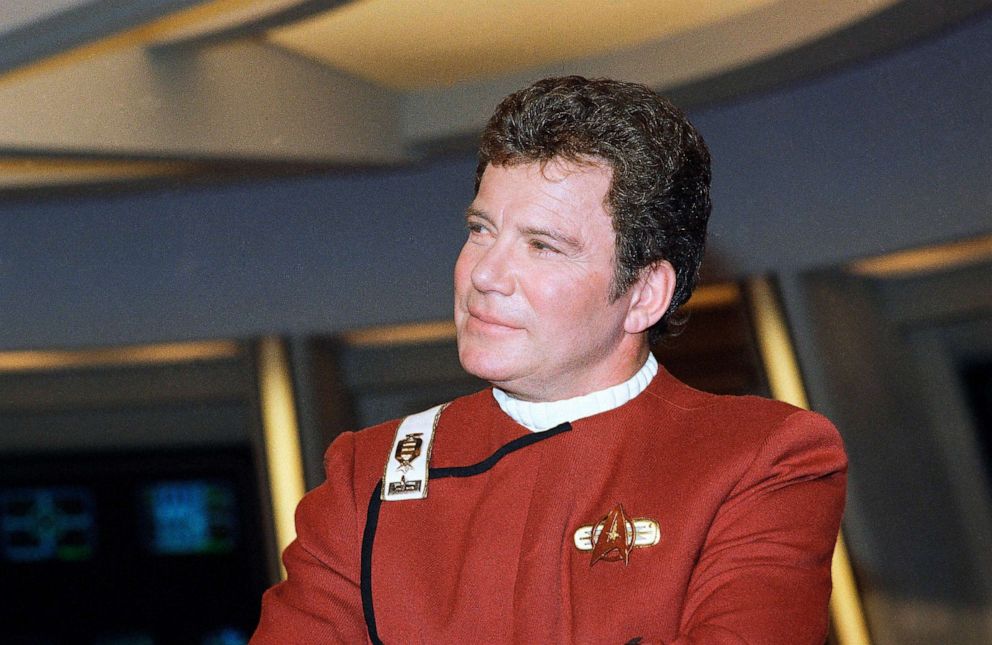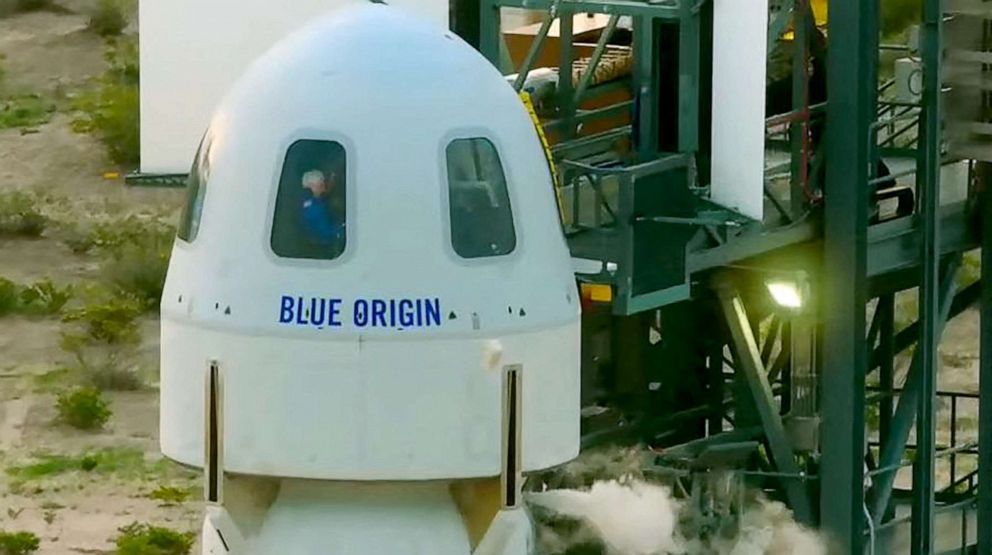How William Shatner's Blue Origin space trip can reignite passion for science
The 90-year-old Star Trek icon will be the oldest person ever to space travel.
He won't be exploring strange new worlds, making first contact with new life forms or even ordering a crew to raise a starcraft's shields, but William Shatner's historic flight into space Wednesday will be extraordinary for science, pop culture and the future of space travel, according to experts.
The actor, who beamed into television sets and movie screens over four decades as Captain James T. Kirk, will take part in an 11-minute space flight aboard Jeff Bezos' Blue Origin's New Shepard NS-18 craft.
"I've heard about space for a long time now. I'm taking the opportunity to see it for myself. What a miracle," Shatner said in a statement Oct. 4.

While Shatner's flight is more about space tourism than science, his trip into the final frontier will be remarkable for a variety of reasons, according to those in the science community.
Most importantly, they say, his flight will rekindle the imaginations of future space explorers.
"I think Shatner is very influential not only for the characters he's portrayed but also what he represents," Rachael D. Seidler, a professor of applied physiology and kinesiology at the University of Florida, told ABC News. "His flight shows that anyone can take part in space travel."
Shatner won't be joined by any of his Star Trek co-stars for this away mission, instead, he will team up with several real-life scientists.
Audrey Powers, Blue Origin's vice president of mission and flight operations and a former NASA flight controller and engineer; Chris Boshuizen, the co-founder of satellite company Planet Labs and a former space mission architect for NASA; and Glen de Vries, the co-founder of Medidata Solutions, a life science company, will take part in the flight.
At 90 years old, Shatner will be the oldest person to date to travel in space, beating the record set by 82-year-old Wally Funk during July's inaugural New Shepard launch. Seidler said that she was thrilled to hear the news about Shatner's participation, particularly as someone who has studied the effects of space travel on the human body and brain.
Seidler said that Shatner's trip won't result in major changes to his body, but will give scientists a clearer picture of how space travel affects older people.
"It's really interesting to think about as we expand the opportunities for space travel what would it be like for someone who is older to go into space for a long period of time," she said.
From a non-science perspective, Wednesday's launch brings space travel back into the public discussion, according to other observers.
Paul Levinson, a professor of media studies at Fordham University, told ABC News that interest in space exploration has waned heavily over the last few decades especially since humans haven't been on the moon since 1972.
"There's a sense of wonder that is missing and there are a lot of ways to get back that sense of wonder," he told ABC News. "Space flights like this one with William Shatner definitely brings some wonder, not just to the Baby Boomers who grew up watching Kirk."

Levinson noted it's hard to quantify the impact that Kirk and the "Star Trek" franchise had on generations of scientists who ended up going into the field because they wanted to be like their favorite crew member. The shows and movies present an optimistic future created by scientific achievement that's attractive to any future scientist regardless of gender, age or nationality, Levinson said.
Joshua Colwell, the chair of the department of physics at the University of Central Florida, agreed. When science fiction and science dovetail, more people tend to be drawn in to read about astronomy, physics and engineering, he said.
"I think the value of things like 'Star Trek' or 'The Expanse' or so many other shows that portray scientific exploration is that those things inspire people to go into these fields," he said.
When asked about the flight's impact on future scientists, Shatner jokingly told Good Morning America Monday that he is not taking the trip to inspire others.
"I'm taking it as an experience," Shatner said with a hearty laugh.
Still, NASA astronauts launching from the space station later this month told ABC News they are excited about Shatner's short voyage.
"I think it captures the imagination of so many of us to see Captain Kirk, William Shatner, getting to fly in space, it's like yeah, who doesn't want to see that happen? I know I do," astronaut Kayla Barron told ABC News last week.
Colwell and others predict this won't be the last time that a major celebrity will blast off into space. The new space race is underway by several private entities, including Blue Origin, Virgin Galactic and Space X -- all looking to compete for space tourism and will likely push their services using big-name figures in the science, business and pop culture world, he said.
While there has been criticism that these flights are nothing more than joy rides for billionaires and celebrities, science and business experts say the flights are crucial for the future of affordable, space travel for all.
Rachel Fu, the chair and professor of the department of tourism, hospitality, and event management at the University of Florida told ABC News that for many people, space tourism is a long way away, but with every successful trip, the industry becomes more of a reality.
Fu, who wrote an essay in July about the future of the space travel industry, said Shatner's pop culture status will spark more even more interest than the space tourists who have traveled so far because Shatner has universal appeal.

Potential travelers and other space flight business leaders will take notice, she said.
"If you are attracting this attention and other entrepreneurs want to invest in this revolution, this will lead to improvements, make [space travel] safer and make it more affordable," Fu said.
At the least, Shatner's trip may serve as a simple pick-me-up for a pandemic-weary world.
"It brings fun, and we all need something after the rough year and a half we've had," Seidler said.
ABC News' Gina Sunseri and Kelly McCarthy contributed to this report.





